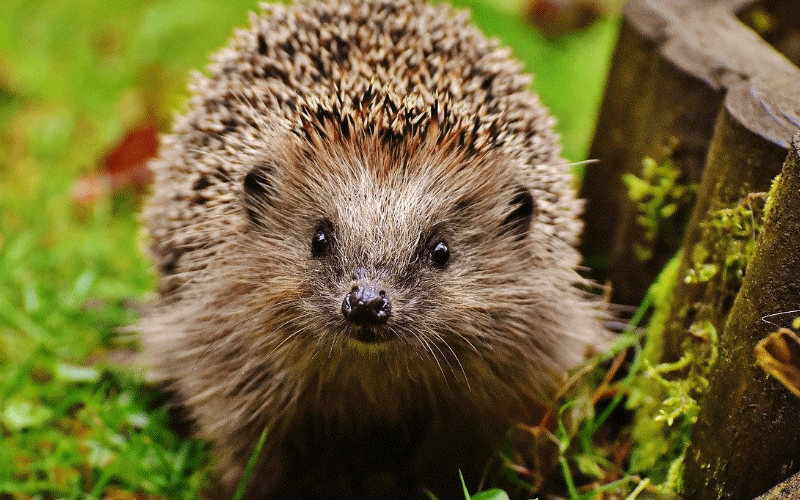Brighter days are here at last. The welcome signs of spring are all around: blossom on the trees; a puff of white cloud in the skies; and the aroma of freshly cut grass and BBQ’s sizzling.
But for one of the UK’s best-loved animals, the onset of spring is a time of danger. As more of us get out in our gardens to trim our lawns and tidy up any messy edges, hedgehogs are at risk of serious injury, or in most cases sadly, death.
During the lockdown of 2020, as more of us turned to gardening to fill our days and get some fresh air, wildlife hospitals saw a huge increase in the number of injured hedgehogs coming through their doors due to strimmer accidents. Now, hedgehog rescue centres are making an appeal to prevent the same situation happening again this year.
With many large animal and wildlife charities closing the doors during lockdown, small rescue centres are struggling to deal with the influx of hedgehogs needing treatment. With growing food and vet costs, fewer volunteers able to be on-site, and no government funding or the ability to host fundraising events, many may have to reduce the services they offer or even close permanently, putting the lives of these prickly creatures at risk.
Val Green, Founder of One Voice for Animals UK said: “We have over 60 hedgehog rescues on our database and speaking to them, the consensus is that there has been a significant increase in hedgehog casualties and deaths since last spring caused by strimmers and other garden machinery. I would ask the public to please check thoroughly before manicuring their gardens as this simple act really could save a hedgehog’s life. Small rescues need our support more than ever at the moment, so if you can donate, whether that be money, supplies or your time, please do. Without their local communities rallying around them, many won’t survive, which will have a devastating effect on wildlife and animal welfare in the UK in the future.”
One Voice for Animals UK was set up in April 2020 to raise awareness of the challenges faced by wildlife and animal rescues across the country. A database featuring centres and charities has been created to make it easier for people wanting to help those in need and the volunteers who care for them.
How to help hedgehogs
- Check your garden, land or allotment for wildlife before strimming or mowing – carefully inspect all areas of long grass before turning on your lawn mower or strimmer. Thoroughly check boarders, hedgerows and areas of dense undergrowth for any hidden hogs or nests.
- Make your garden hedgehog friendly – creating safe areas for the animals such as log piles, dense bush areas and leaf piles is advised. Don’t use slug pellets or other chemicals, they may poison hedgehogs and other animals.
- Feeding – As well as purpose-made hedgehog feed, wet or dry dog or cat food is ideal (but not fish flavours). Leaving a bowl of water out is also recommended. Hedgehogs are lactose intolerant so please NO bread or milk, and NO mealworms as it causes illness.
- Little houses – hedgehogs need protection, so creating small box-like homes for hedgehogs is also encouraged. These can be perfect to store food for the animals too.
People wanting to help small wildlife rescues looking after precious hedgehogs and other animals in need can visit the One Voice For Animals UK database.





